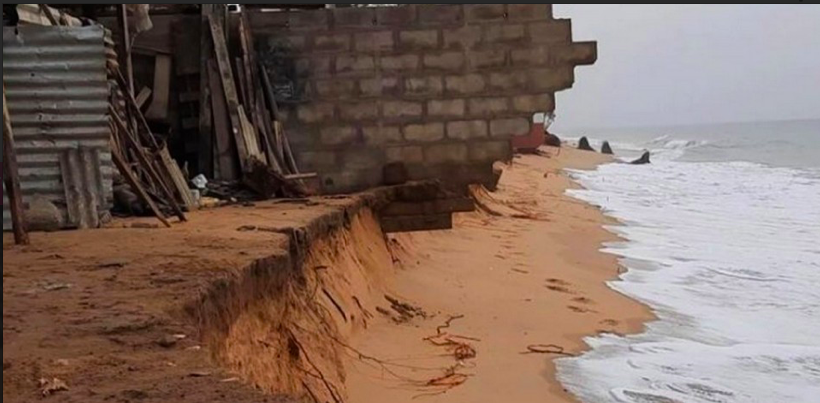The Ghana Hydrological Authority (GHA) has issued a warning that 370 kilometers of the country’s coastline are at risk of being destroyed by waves and human activities, and has therefore called for immediate action to prevent the loss of national assets.

The GHA’s director, Dr John Kissi, made this appeal on Tuesday at a press conference in Accra to draw attention to his concerns about this risk.
In view of the dangers posed to the coastline, he warned that if the problem is not resolved, infrastructures such as the Aboadze power station in Takoradi, the Denu-Aflao freeway, the Accra-Takoradi road in Cape Coast, and educational establishments such as the St. Augustin high school and the Cape Coast nursing and obstetrics training center will be affected.
With regard to the Aboadze Power plant, he indicated that if it is affected, the country risks losing 730 megawatts from the national grid, which could exacerbate the country’s energy crisis.
The coastline at risk represents two-thirds of the country’s 550 km of coastline. It stretches from west to east, and is home to strategic installations and infrastructures that are threatened by tidal waves. Two-thirds of the coastline is therefore threatened by marine erosion and requires immediate attention to prevent the destruction of essential national assets.
On the measures already taken, the GHA director explained that 80 km of the at-risk coastline is currently protected, leaving 290 km to be protected, while a third of the entire coastline, representing 180 km, is considered fairly stable and not very vulnerable.
With a view to tackling this threat, Dr Kissi first congratulated the government on a number of projects it had launched and which were at various stages of completion, and then pleaded for the state and the private sector to invest a little more in at-risk areas to protect various national assets and communities. He also urged the public to refrain from engaging in sand extraction activities that aggravate coastal erosion.
In sum and in view of the above, it is urgent to stress that there is no doubt that the impact of climate change in Ghana is beginning to show, with evidence of rising temperatures in all ecological zones, and a general decrease in rainfall levels.
Source: KOACI

